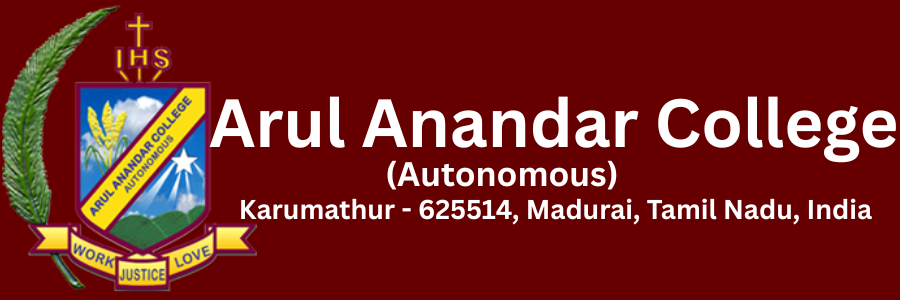- Home
- About us
- Administration
- Academics
- Research
- Student Support
- Outreach
- Alumni
- Admissions
- AAC Portal
- Contact

CHOICE BASED CREDIT SYSTEM (CBCS)
AAC introduced CHOICE BASED CREDIT SYSTEM in 2003 for UG–Aided Courses. The new pattern of the CBCS based on the guidelines of the Tamil Nadu State Council for Higher Education (TANSCHE) was extended to all undergraduate and postgraduate programmes of both Aided and Self-financed streams from the academic year 2008-09. A thoroughly restructured CBCS was implemented in 2012-13.
Academic flexibility under the guiding principles of autonomy has been exercised in designing the new CBCS. While the Government of Tamil Nadu fixed an overall minimum of 140 credits to the undergraduate programmes, the college has added two more credits incorporating Intensive Bridge Course in English during the first semester and ARISE (Arulanandar Initiative for Social Education) extension programme during the second year of study.
All these are aimed at increasing the capabilities of the students to meet global competency with communication skills, social responsibility and also to inculcate a sense of value system in the minds of students. The UGC guidelines are adhered to while restructuring the curriculum and the courses are designed in the modular form.
The CBCS enables the students to excel in higher education. The characteristics of the new pattern are: broad based, learner oriented and suited to the abilities of the learners. It enhances their career opportunities. The courses are offered at the interdepartmental level. It also provides scope for earning extra credits and gives greater autonomy to the departments to design innovative courses. Academic flexibility is ensured by the options available in allied papers, skill-based electives and non-major electives under Part IV. Similar options are also available for the students to select Part V programmes according to one’s interest and need. As all the departments offer self-learning courses there is scope for the advanced learners to fulfil their aspirations of earning extra credits.
The college has established provisions for average learners and advanced learners. The Differential Streaming System in Part – II General English followed at Arul Anandar College since 1987 identified as one of the best practices by NAAC. Besides, the compulsory component of foundation courses like Personality Development, Bio Ethics, Environmental Studies, Human Rights, etc. add value to the curriculum structure by fulfilling the core value of inculcation of value system in the minds of the students. A paper on computer education is made compulsory for all the students at UG level in order to foster global competencies.